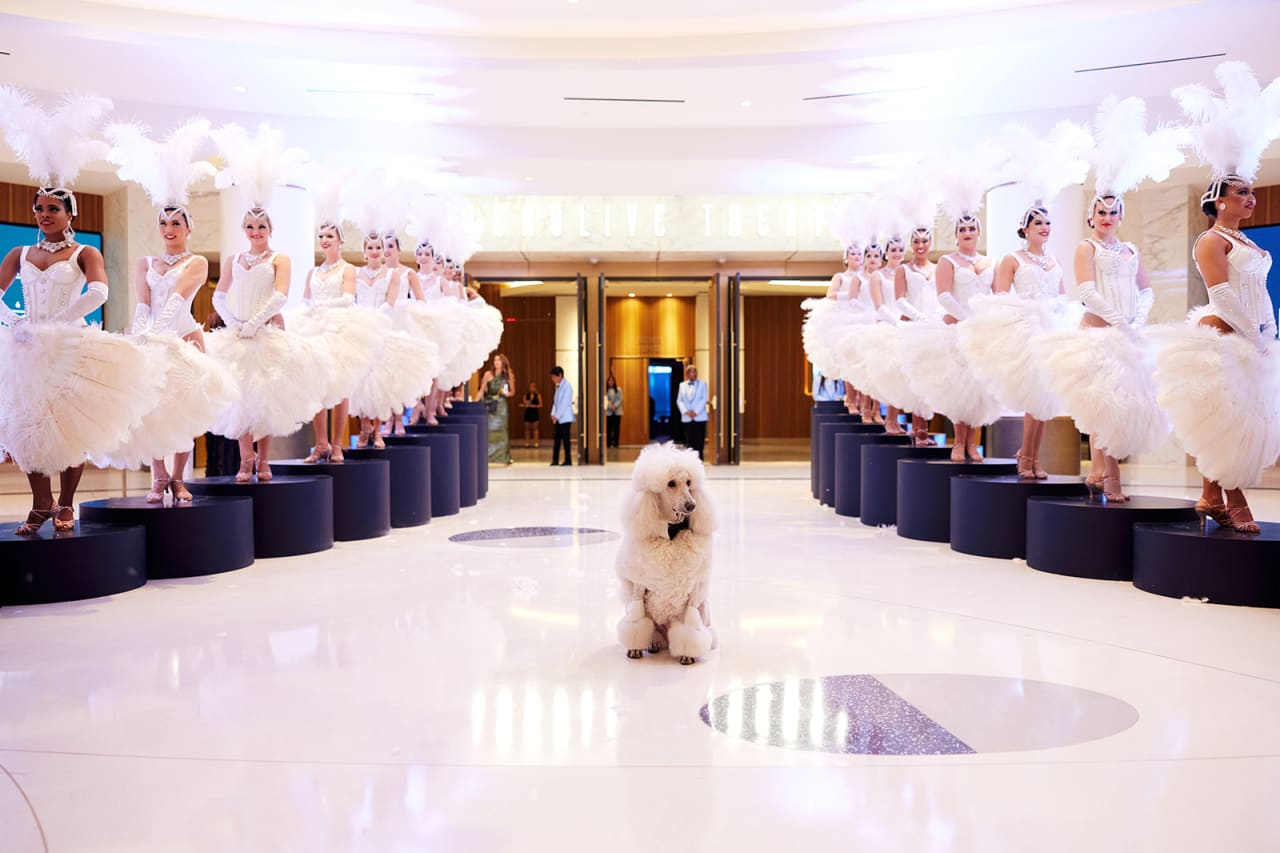How Your Personality Can Affect Your Portfolio
Neuroticism and openness, in particular, are closely linked to investors’ willingness to buy stocks
Can certain personality traits explain investors’ risk tolerance and investment decisions?
A forthcoming paper suggests it might. Specifically, the authors found that two personality traits—neuroticism and openness—significantly affect how investors perceive the economy, financial markets and their likelihood to buy stocks or stock funds, with those who are less neurotic and more open tending to have a higher allocation to equities.
While the authors primarily studied investors in the U.S., they also identified similar patterns among investors in Germany, Australia and China.
The Wall Street Journal spoke with two of the paper’s co-authors, Hongjun Yan, a professor of finance at DePaul University’s Driehaus College of Business, and Cameron Peng, an assistant professor of finance at the London School of Economics, about their findings. Zhengyang Jiang, an associate professor of finance at Northwestern University’s Kellogg School of Management, is the paper’s other co-author.
Here are edited excerpts of the conversation.
WSJ: How can psychology theories help to explain investor behaviour?
YAN: Investors often have very different portfolios. Traditionally, economists focus on risk aversion and market expectations, but in this paper we argue that well-known personality traits—extroversion, agreeableness, openness, conscientiousness and neuroticism—provide a new dimension to explain investors’ choices.
In the Winnie-the-Pooh stories, Tigger is always excited and optimistic while Eeyore is always down and pessimistic. You might expect their investment portfolios to look very different and reflect their overall outlook.
WSJ:How did you study this topic?
PENG: We collaborated with the American Association of Individual Investors, administering a survey to over 3,000 of its members. We collected information on their personality traits, market expectations, and investment decisions. The AAII sample is predominantly wealthy, white, older men. And when they make investment decisions, they are usually quite big, involving hundreds of thousands or even millions of dollars. Their actions can have a real impact on the market.
WSJ:What did you find?
YAN: We found that neuroticism and openness are correlated with investors’ beliefs about the market and their likelihood to buy equities. We were surprised that agreeableness wasn’t important when it comes to investment beliefs or decisions since other researchers have found that agreeableness tends to be correlated with other economic outcomes, like success in negotiating wages.
WSJ: How does neuroticism affect investors’ decisions?
YAN: Someone who is more neurotic has a very different outlook than someone who is not in terms of stock-market expectation. For example, an investor ranking in the middle of the [neurotic] scale might expect an annual stock-market premium of about 6%. But investors at the top of the scale are likely to only expect a 4% stock-market premium, while investors at the bottom of the neuroticism scale are likely to expect an 8% stock-market premium.
PENG: Neuroticism also affected how respondents invested their money in their actual accounts. More neurotic investors were less likely to own equities. Very neurotic investors invested about 56% of their portfolio in equities, while investors who weren’t neurotic invested about 64% of their portfolio in equities.
WSJ:How does openness affect investors’ decisions?
PENG: Investors ranking high for openness were more likely to entertain the possibility of extreme events, like a market crash or a run—really any scenario when the market goes up or down by more than 20%.
Investors who were very open were somewhat more likely to take risks by buying equities. Specifically, investors who were the most open were 3 percentage points more likely to own more equities than investors who weren’t. They had about 62% of their portfolio in equities, while investors who were less open had about 59% of their portfolio in equities.
WSJ: What did you find when you looked at data from other countries?
YAN: We find that neuroticism and openness affect market perceptions and decisions fairly consistently across different data sets. That’s quite remarkable considering the culture and investing environment in each country is very different.
WSJ:What are the study’s implications?
YAN: Personality traits may shape investors’ decisions in ways that many economists have yet to seriously consider. Our research, for instance, also suggests more extroverted and more neurotic investors’ investment choices could be highly influenced by social interactions, or what their friends or colleagues are doing. That insight goes beyond economists’ traditional framework, which focuses on risk tolerance and market expectations, and could help researchers better explain investor behaviour.
PENG: Large asset-management firms or financial planners could spend time getting to know their clients’ personalities and use those insights when they make investment recommendations. Maybe they could encourage investors who tend to be neurotic to be a little less pessimistic.
 Copyright 2020, Dow Jones & Company, Inc. All Rights Reserved Worldwide. LEARN MORE
Copyright 2020, Dow Jones & Company, Inc. All Rights Reserved Worldwide. LEARN MORE
This stylish family home combines a classic palette and finishes with a flexible floorplan
Just 55 minutes from Sydney, make this your creative getaway located in the majestic Hawkesbury region.
Continued stagflation and cost of living pressures are causing couples to think twice about starting a family, new data has revealed, with long term impacts expected
Australia is in the midst of a ‘baby recession’ with preliminary estimates showing the number of births in 2023 fell by more than four percent to the lowest level since 2006, according to KPMG. The consultancy firm says this reflects the impact of cost-of-living pressures on the feasibility of younger Australians starting a family.
KPMG estimates that 289,100 babies were born in 2023. This compares to 300,684 babies in 2022 and 309,996 in 2021, according to the Australian Bureau of Statistics (ABS). KPMG urban economist Terry Rawnsley said weak economic growth often leads to a reduced number of births. In 2023, ABS data shows gross domestic product (GDP) fell to 1.5 percent. Despite the population growing by 2.5 percent in 2023, GDP on a per capita basis went into negative territory, down one percent over the 12 months.
“Birth rates provide insight into long-term population growth as well as the current confidence of Australian families,” said Mr Rawnsley. “We haven’t seen such a sharp drop in births in Australia since the period of economic stagflation in the 1970s, which coincided with the initial widespread adoption of the contraceptive pill.”
Mr Rawnsley said many Australian couples delayed starting a family while the pandemic played out in 2020. The number of births fell from 305,832 in 2019 to 294,369 in 2020. Then in 2021, strong employment and vast amounts of stimulus money, along with high household savings due to lockdowns, gave couples better financial means to have a baby. This led to a rebound in births.
However, the re-opening of the global economy in 2022 led to soaring inflation. By the start of 2023, the Australian consumer price index (CPI) had risen to its highest level since 1990 at 7.8 percent per annum. By that stage, the Reserve Bank had already commenced an aggressive rate-hiking strategy to fight inflation and had raised the cash rate every month between May and December 2022.
Five more rate hikes during 2023 put further pressure on couples with mortgages and put the brakes on family formation. “This combination of the pandemic and rapid economic changes explains the spike and subsequent sharp decline in birth rates we have observed over the past four years,” Mr Rawnsley said.
The impact of high costs of living on couples’ decision to have a baby is highlighted in births data for the capital cities. KPMG estimates there were 60,860 births in Sydney in 2023, down 8.6 percent from 2019. There were 56,270 births in Melbourne, down 7.3 percent. In Perth, there were 25,020 births, down 6 percent, while in Brisbane there were 30,250 births, down 4.3 percent. Canberra was the only capital city where there was no fall in the number of births in 2023 compared to 2019.
“CPI growth in Canberra has been slightly subdued compared to that in other major cities, and the economic outlook has remained strong,” Mr Rawnsley said. “This means families have not been hurting as much as those in other capital cities, and in turn, we’ve seen a stabilisation of births in the ACT.”
This stylish family home combines a classic palette and finishes with a flexible floorplan
Just 55 minutes from Sydney, make this your creative getaway located in the majestic Hawkesbury region.






















